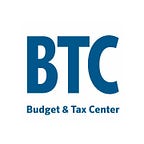NC General Assembly can afford to go all-in to address COVID-19 harm
As legislators returned to Raleigh last week, the state’s latest Cash Watch data for the week of Jan. 11, 2021, shows that North Carolina has $4.4 billion in unreserved funds — leftover after meeting current appropriations and available to meet current needs.
State lawmakers should appropriate these dollars immediately to meet the rising hardships facing families, the challenges in containment of the coronavirus and roll-out of the vaccine, and the financial pressures on local governments and public institutions that need to expand services to protect the common good.
North Carolina can afford to put people first and respond robustly to COVID-19 while putting communities on sounder footing for the future. These dollars show that North Carolina need not solely rely on the restrictive and time-limited aid, like what the federal government delivered at the end of December.
North Carolina’s state leaders can invest in a plan for the long-term that strengthens our collective well-being. As one economist recently suggested, failing to do so would be like “pouring fuel on a raging dumpster fire.”
The irony of course, is that the state has these dollars, in part because of years of chronic under-investment fueled by an ideology that privileges the few at the expense of us all. The very institutions that are now charged with the frontline response — the Division of Employment Security, the state’s local public health offices, school districts, and the early childhood system to name a few — are hampered by the resulting loss of staff and resources that diminishes the ability to adapt to the changing conditions.
- For the past decade, North Carolina General Fund spending has remained below the 45-year average of 6% of total state personal income (the total amount of income received by people within the state in a given year).
- In fiscal year 2019, the state spent just 4.9%of state personal income in state appropriations.
- North Carolina would have needed to spend an additional $5.3 billion last fiscal year to get back to the 45-year average of spending as a percentage of state personal income.
Unreserved funds are partially a reflection of the General Assembly’s failure to pass a comprehensive budget for the past two years and a longer-term refusal to meet the demands of families and communities struggling to make ends meet. Investing these funds in our public institutions today could set a different trajectory for our state — one that improves health care access, keeps people in their homes, expands educational opportunities, and fuels our economy.
The other factors driving the unreserved balance — an economy that is consolidating benefits for the wealthy and profitable corporations — underline the need for such a robust public response and supports that will push against these economic trends that threaten to deliver an unequal and uneven recovery.
A deeper look at the November 2020 Monthly Report on the General Fund shows that tax collections are running ahead of where they were in the prior year despite the pandemic. Total tax collections are up 17%, or about $1.6 billion, from this time last year. This is largely due to the combined impacts of stabilization from federal and state relief policies and the economy continuing to deliver record profits and income growth to the privileged few.
The federal stimulus in 2020, which included taxable Unemployment Insurance payments to hundreds of thousands in North Carolina who lost their job, stabilized income collections, and the Payroll Protection Program kept many workers employed. The now well-documented quick recovery for the wealthiest in our country and state also meant income losses weren’t as deep in the aggregate, even as many workers earning low wages continue to struggle to return to pre-pandemic income levels.
As the graph below shows, high-wage earnings in North Carolina as of Oct. 15, 2020, increased by 4.2% while employment for low wage work is still 20% below pre-pandemic levels.
Finally, corporate profits are notably up in the state. Seventeen of the top 25 most profitable corporations nationally were expected to rake in $85 billion more in profits during 2020 than what they averaged in the four years before the pandemic. That means that even as the income tax rate remains the lowest in the country at 2.5%, corporate income tax collections are higher than the prior year. If North Carolina’s corporate income tax rate were 6%, the Institute on Taxation and Economic Policy estimates that the state would collect about a billion more dollars a year.
North Carolina’s legislative leaders have an opportunity to go all-in now on COVID-19 relief and make clear their long-term commitment to a just recovery. The stability of the state’s public response is likely to hasten the recovery and, if designed with people’s well-being at the center, can ensure that it is a just recovery that puts us all on sounder ground for the future.
The author, Alexandra Sirota, is the Director of the Budget & Tax Center, a project of the NC Justice Center. Leila Pedersen and Suzy Khachaturyan, who are policy analysts with the Budget & Tax Center, contributed.
